Taralga Historical Society
Our Attractions
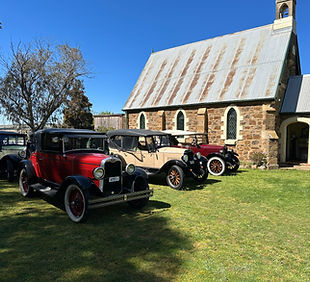
Church Museum
In January 1853, an acre of land granted to James Macarthur by the crown was transferred to Thomas Denning for the purpose of constructing a Wesleyan Church. The church was inaugurated by Rev. W. Curnow and Rev. R.V. Danne, and served as a place of worship for Wesleyans and later Methodists until its closure in the 1950s. In 1972, the Taralga Historical Society was established to safeguard the village's heritage and successfully secured the old Methodist church from the Uniting Church N.S.W. Synod. The church now houses a museum dedicated to life of pioneering families of the Taralga district and serves as the headquarters of the Taralga Historical Society.
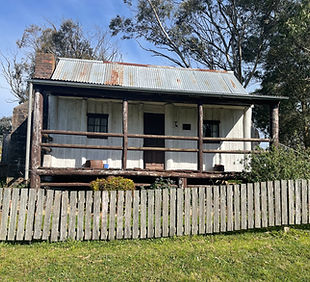
Cordingley Settler's Cottage
Our Bicentennial Project for 1988 was the construction of this cottage, which was opened on April 2nd, 1988. The cottage was reconstructed from the original home on the Big Hill Property, which was formerly owned by Mr. Albert Bunter, then Miss Birdie Ayre and her sister Mrs. Ivy Cordingley. The building was dismantled and rebuilt in the Historical Society's grounds by its members. It has been furnished with items donated to the Society, reflecting the colonial period as lived in by early Australian families.
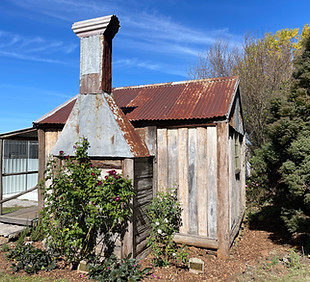
Ferndale School
The school building has been carefully relocated to the Taralga Historical Society grounds, where it now stands as a reminder of early education in rural New South Wales. Originally serving children in the Ferndale area, this small country school offers a glimpse into the classroom experience of past generations.
Inside, visitors will find original desks, books, and teaching materials that reflect the simple but resourceful environment in which local children once learned. The school provides an engaging way to step back in time and appreciate the role of education in shaping community life in the Taralga district.
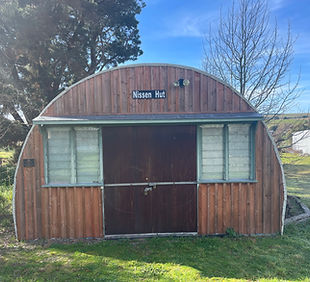
Nissen Hut Military Display
The Society was the recipient of the Nissen Hut, generously donated by the Goulburn Workers Club. Following its disassembly and reconstruction on the Museum grounds, the Hut was inaugurated on 11 November 2011. Its purpose is to exhibit memorabilia from local servicemen and women who valiantly served their country in all conflicts.

Heritage Shed
Experience a glimpse of the past by visiting the Heritage Shed with its own shearing shed and blacksmiths shop.
This exhibit showcases a diverse collection of items associated with the wool and shearing industry, as well as an array of tools and artefacts associated with early pioneering life in the Taralga district.
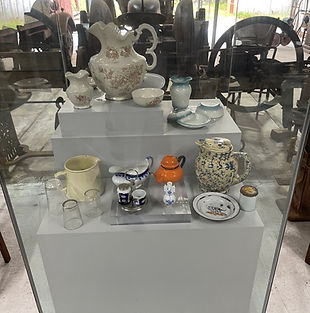
Village Life Shed
This attraction offers a unique window into everyday life in the early 1900s. Home to a collection of rare and valuable artefacts, the exhibition has been designed as both a first-class display environment and a working space for our museum volunteers, who carefully restore and preserve these items for future generations.
It showcases household tools and objects that reflect the resilience and resourcefulness of families during that period.
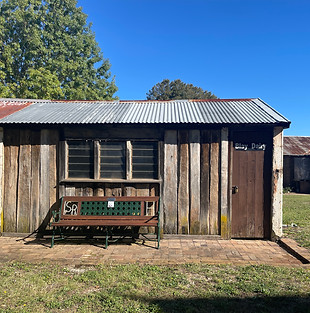
Blay Dairy
The Blay Dairy celebrates the once-thriving dairy industry of the Taralga district, which from the early 1900s to the 1950s supported as many as 168 local dairy farms. The district’s final dairy, operated by the Blay family at Myrtleville, closed in 1996, marking the end of an era.
Today, the Blay Dairy building houses a collection of objects and memorabilia that tell the story of this important industry and the families who sustained it. Visitors can explore the tools, equipment, and history that shaped daily life in Taralga’s dairying past.
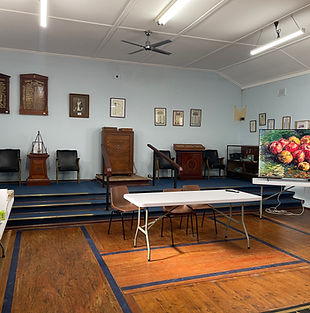
Family Research Centre
Our Research Centre provides a welcoming space for anyone interested in tracing their ancestry and uncovering family stories. Equipped with high-speed internet, the Centre allows visitors to access a wide range of online genealogy and history resources that may otherwise be difficult to reach in rural areas.
Open to the Taralga community, family historians, and visitors alike and whether you’re beginning your family history journey or building on existing research, the Family Research Centre offers the support and resources you need to explore your heritage in detail.